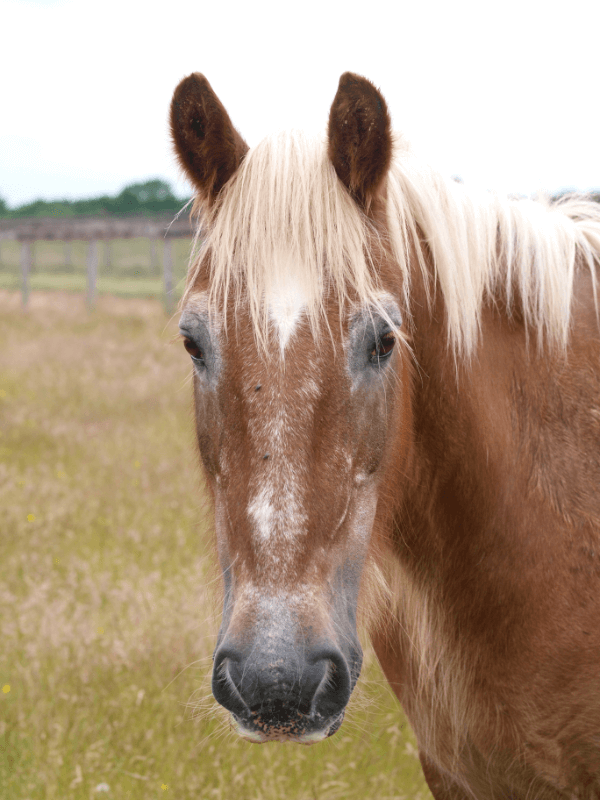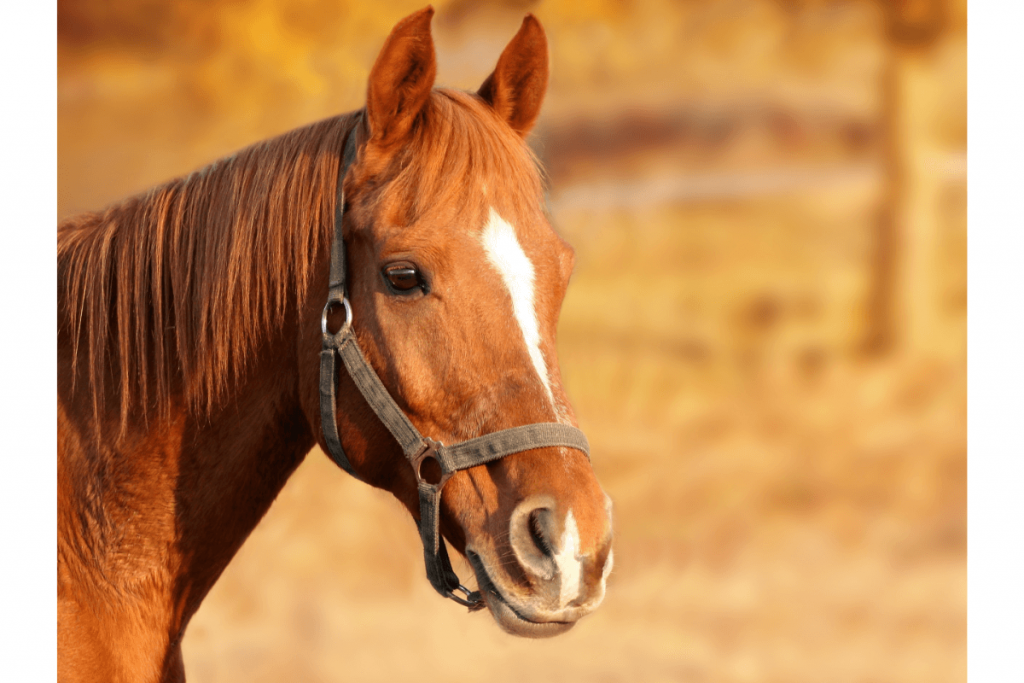Skin conditions are the source of much frustration for horse owners. They can be caused by a wide range of factors – such as allergies, infections and hereditary factors – and treatment isn’t always simple.
In this blog, we take you through the most common horse skin conditions, including signs to look out for and treatment options.
How do I know if my horse has a skin condition?
Skin conditions present themselves in a number of ways, depending on the cause. Signs to look out for include:
- Noticeable changes in the hair and coat
- Reddened or inflamed areas of the skin
- Bleeding spots
- Lesions
- Raised nodules
- Areas that are sore to touch
- Thickened, wrinkled skin
What are some of the most common conditions?
Allergic reaction to insect bites

Hypersensitivity to insect bites is the number one cause of skin conditions in horses. And as the weather warms up, the impacts of these allergies worsen.
While you may have heard of Queensland or sweet itch – which is a reaction to a particular kind of gnat – if your horse is hypersensitive to this gnat, chances are they will have an allergic reaction to most types of insects.
Allergic reactions typically present themselves as large, itchy raised spots, which lead to hair loss, skin damage, and sometimes infection. These symptoms result in continual itchiness and pain.
Treatment options include medicated shampoos and topically applied creams and lotions that contain antihistamines or corticosteroids. Your vet may also recommend steroid injections for more severe cases of allergic reactions.
Ringworm
Ringworm is a fungal disease and can also cause your horse itchiness and pain. It results in noticeable changes in the hair and coat and can spread quite quickly. There is a range of washes, shampoos and sprays that can be applied to the skin as treatment. Ringworm is highly contagious – to both humans and other animals – so it’s important to get on top of this disease as soon as possible.
Atopic dermatitis
Equine atopic dermatitis is a hereditary condition whereby horses display a sensitivity to a range of environmental factors (such as pollens, mould spores and fragments of insects). This is quite different to the contact allergy some horses may have to insect bites. With atopic dermatitis, the reaction is caused when the antigen is absorbed through the skin or mouth. Most common in thoroughbreds, the condition is characterised by a chronic itch, hair loss, scaling and skin lesions. Treatment can be quite hit or miss. Medicated shampoos help to some extent, antihistamines are another option, and steroids may be used as a short-term measure.
Hives
Also known as urticaria, hives are quite a common horse skin condition. They can be caused by a number of factors, including medication, food, weather, topical products and allergies. Hives are typically circular in nature and can display as either small spots to very large lesions. Lesions as a result of hives are most common on the trunk, neck and upper legs, and aren’t usually overly itchy or painful. Short-acting steroids may be advised in more severe cases, however finding the cause of the hives is the recommended strategy.
Greasy heel
Occurring in the wetter parts of the year, greasy heel is the result of extended periods of time spent in wet, moist conditions. As the name suggests, the condition affects the lower limbs, particularly the hind legs. Initial indications of greasy heel include the swelling and reddening of the back of the pastern, progressing to scaly, crusty lesions. While prevention is the best cure for greasy heel, you can usually treat the condition yourself by gently removing any scabs and applying antiseptic ointment until the legs heal.
When should I consult my vet?
With all of the above conditions, it’s important to not let them go on for too long. If your horse’s skin condition hasn’t resolved in a week or so, or their overall health is affected, you need to consult your vet. Further testing – such as a biopsy – may need to be performed to identify the cause before further treatment can commence.
If your horse has a skin condition that won’t seem to heal – or any other health complaint – Cameron Veterinary Services’ equine vets can help. We travel across the Adelaide Hills region and beyond, and offer a full range of high-quality veterinary services for your pleasure or performance horse.
To make an appointment, call us on 08 8318 1801.



